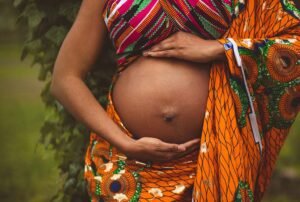
Despite rigged rules and relentless attacks on our right to vote, Black communities have shown up, shown out, and changed the trajectory of this country for the better. In the last decade, we have transformed the national landscape in ways that bend toward freedom. The global social movement for Black lives has hastened our victories over the last decade. We have shifted the balance of power in Congress, ushered in a new president to replace one pushing us towards fascism, and won important victories in cities and states across the nation. Our legacy is one of resistance, resilience, and change; from slave rebellions to the civil rights movement of the 1960s to the Black Lives Matter movement of today, Black communities have always been at the forefront of significant and meaningful change.
What’s good for Black communities is what’s good for the country, as Black communities are a bellwether of our society. What Black people need and the issues they experience—like low wages, expensive health care, and unaffordable housing—are what most Americans are experiencing now, even as Black communities have been impacted by these issues for decades. By addressing the needs of Black people and securing the things we deserve—including livable wages to raise and support our families; affordable, quality health care; physical, social, and emotional safety; and the power to make and change the rules that impact our lives—the needs of everyone in this country will also be met. As the saying goes: A rising tide lifts all boats. If you want a pulse on what’s happening in the country at-large, listen to Black communities.
However, despite our proven political power and influence, elected officials, political campaigns, and political parties have made little to no meaningful investment in our communities. They are comfortable with talking at Black people, but few talk with us, limiting our ability to have a say in the decisions and policies that impact us. Hollow gestures, photo-ops at the barbershop and chicken spots ahead of an election, and officials who talk without listening—this is what our communities have come to expect from those in power. It’s not good enough. We deserve better.
Black people need more than a seat at the table to activate our power—we need to set the menu. When Black voters aren’t engaged, the consequences are severe: we are left out of shaping policies that impact us directly and, often, disproportionately. That’s why I formed Black Futures Lab and Black to the Future Action Fund, two groups that work to make Black communities powerful in politics so that we can be powerful in the rest of our lives. We do this in five ways.
First, we listen to what Black people are concerned about and want, something political leaders and parties rarely do. The Black to the Future Action Fund’s Temperature Check polls and the Black Futures Lab’s Black Census Project are two tools we use to share the perspectives and insights of Black people with legislators and other political decision makers.
Our recently concluded Temperature Check polls, a series of six bi-monthly surveys of 1,000 Black adults, offers a one-of-a-kind look at Black communities’ top priorities. We found that, overwhelmingly, economic recovery is our top priority. The top two policy priorities of Black adults were consistent in every poll over the entire series: $2,000 monthly relief checks until the economy recovers and increasing the minimum wage to $15 an hour. Nearly twice as many respondents said that their finances worsened during the pandemic (33 percent) compared to people whose finances improved during the same period (18 percent). When we asked Black people with an annual household income under $20,000 how they would use monthly relief checks, the majority responded that they would pay for basic needs. Nearly two-thirds said they would pay for utilities and food, and around half would pay their rent and mortgage. Clearly, the pandemic exacerbated generations-old conditions, structures, and policies that have left our communities back and behind.
The poll results also show, in no uncertain terms, how starkly Black people feel unprotected by our government. On average, almost half (48 percent) of Black people—a core constituency that led Democrats to victory in 2020—are dissatisfied with the direction the country is headed.
The Black Census Project 2022 aims to reach 200,000 Black people from across all 50 states. Translated from English into five languages—Amharic, Spanish, Yoruba, French Kreyol, and Portuguese—the census asks our communities about their experiences, concerns, and dreams for the future. When completed, it will be the largest survey of Black people conducted in American history. The results gleaned from the census will inform a Black legislative agenda that we will organize around in cities and states across the nation. This valuable resource will also provide the Biden-Harris administration, elected officials, cabinets, and campaigns irrefutable insights that they can use to address Black communities’ needs. By encouraging our communities to stay engaged, and by informing, influencing, and impacting all the institutions and decision makers that should be engaging Black people, we will ensure Black voters are not left high and dry until the next Election Day.
Sign up for our free newsletters
Subscribe to NPQ's newsletters to have our top stories delivered directly to your inbox.
By signing up, you agree to our privacy policy and terms of use, and to receive messages from NPQ and our partners.
Second, we educate, activate, and motivate Black voters and support the leaders who champion their needs and solutions. Black to the Future Action Fund field organizers are knocking on hundreds of thousands of doors in our five priority states—Georgia, North Carolina, California, Louisiana, and Wisconsin—to mobilize Black voters for the upcoming midterm elections. We chose to invest in these states for the next five years because each one offers a tremendous opportunity to shift the balance of power in favor of Black communities and advance progressive policies that reflect our priorities. In North Carolina, we could send to the US Senate a Black woman who’s worked to reform the criminal legal system. In Georgia, we could send to the Governor’s office and the Secretary of State’s office, respectively, a Black woman and a Vietnamese-American woman who want to protect and expand voting rights. In Wisconsin, we could send to the US Senate a Black man who was a community organizer and who worked for years on policies that improve the lives of our communities.
To hone our political power, this fall, we’re educating our communities on the role of governors and secretaries of states, the impact of redistricting, how misinformation is being used to dilute our power, and how local and state governments misspent Covid-19 relief and recovery dollars. We designed a comic book to reach our communities about the issues we care most about—and we are working on a report card so that we know who is standing up for us and what we care about.
Third, we train Black leaders to rewrite the rules that hold our communities back. The Black to the Future Public Policy Institute trains future Black policy makers to create and implement policies that will transform our communities and secure our futures. To date, 63 fellows from more than 20 Black-led, Black-serving organizations from across the country have participated in the institute, learning and receiving key insights from local and national leaders like Ebony Meeks, deputy chief of staff to the New York Council Speaker; Alicia Netterville, deputy director for the ACLU Mississippi; journalist Joy Reid; civil rights leader Bryan Stevenson; and Congresswoman Ayanna Pressley.
These fellows have gone on to secure big policy wins in their communities, including the Justice for Survivors Act (AB 124) in California—a policy that was designed inside our institute and became state law in 2020.
Fourth, we also build capacity by investing in Black organizing infrastructure. The Black Futures Lab and the Black to the Future Action Fund launched the Black Organizing Innovations Project, which grants Black-led, Black-serving organizations up to $250,000 to supercharge innovative ideas that best engage Black communities—and ensure they stay engaged. In addition, we are partnering with The Management Center on a unique capacity-building program for executive directors and organizing staff at Black-led, Black-serving organizations.
Fifth, we practice what we preach. Our all-Black staff represents the diversity found in our communities. We are multigenerational and live all over the country. Some of us are US-born, others immigrants. Some of us are multilingual. We have diverse education and work experiences and are LGBTQ, parents, and more. The organization creates space where staff can show up as our full selves, and it prioritizes self-care and rest by calendaring time off for all staff. This is important because if our movements and organizations for change perpetuate the same dynamics that we aim to disrupt, we are not creating change—we are merely rebranding the same set of practices and the same dysfunctions.
We operate in an increasingly tumultuous political environment where the progress that Black communities have led is under vicious attack. Now, it is more important than ever that we keep building Black political power by centering Black people’s experiences, needs, and solutions. It’s the only way we can win a robust democracy that works for everyone.










